Every year, the month of November is Mouth Cancer Action Month, the UK’s biggest charity campaign for spreading awareness of mouth cancer. During November, thousands of people go into their communities to help teach people about mouth cancer.
Although the disease claims more lives each year than testicular and cervical cancer combined, it is not spoken about as often as other cancers. As a result, people aren’t aware of the symptoms to look out for, or the risk factors associated with oral cancers. By raising awareness, we help to increase cases of early detection and early treatment.
Spotting the symptoms of mouth cancer
To help increase the chances of successful treatment, it’s important to know what mouth cancer symptoms to look out for to ensure early diagnosis of the disease. It can strike throughout the mouth, including the tongue, gums, cheeks and lips, as well as the neck.
You should look out for the following symptoms:
- Red and white patches in the mouth
- Lumps or swelling in the mouth, head and neck areas
- Ulcers that don’t heal within three weeks.
Other signs to look out for include:
- Unexplained weight loss
- Unexplained loose teeth
- Voice changes or speech difficulty
- Blood or numbness in your mouth
- A tooth socket failing to heal after an extraction
- Trouble or pain swallowing
- Trouble moving your jaw
If in doubt, you should get checked out by your GP.
Attending regular appointments with your dentist also helps to increase the chances of mouth cancer being spotted early. During a routine dental check, dentists will carry out a visual mouth cancer check, so we recommend that you arrange check-ups at least every six months.
Mouth cancer risk factors
Whilst we don’t know exactly what causes most mouth cancers, several factors are seen to increase the risk of mouth cancer, many of which are lifestyle-related. This means that making a few changes to your lifestyle can help reduce the risk of developing mouth cancer.
Here are some of the factors that increase your risk of mouth cancer:
- Smoking tobacco can increase the risk of mouth cancer by as many as ten times.
- Drinking alcohol to excess is related to a third of all mouth cancers.
- The human papillomavirus (HPV) is now seen as one of the main causes.
- A third of mouth cancer cases are linked to a poor diet and lack of vitamins and minerals.
- Too much UV radiation is a known cause of skin cancer, which can develop on the lips.
- People who have had mouth cancer are at more risk of developing it again.
- People who have had skin, cervical, penile, anal and oesophagus cancer are at greater risk.
- Links have been found between genetic bone marrow, skin and fingernail conditions and mouth cancer.
- People undergoing treatment for HIV or AIDS, and those taking medication after organ transplants are more at risk.
- There is a slight increase in risk for those who have had a close relative diagnosed with the disease.
If any of these risk factors apply to you, you can help reduce your risks of developing oral cancer by changing your lifestyle.
Orthodontic treatment
If you would like to undergo orthodontic treatment, strong, healthy gums and teeth are essential. If you have any concerns about your oral health or potential symptoms of cancer, you must seek medical advice.
If you would like more information on Mouth Cancer Action Month and how you can support this event, you can click here.
To arrange an appointment with Marsh House Orthodontics, please call 020 8646 6200 or contact us here.






